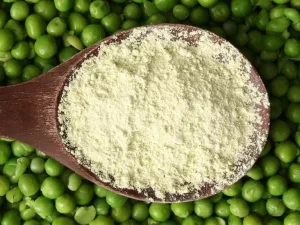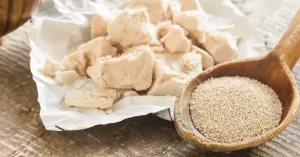Healthline rates the green tea detox diet a 2.79 out of 5. It’s simple to implement and helps with hydration but can also reduce nutrient uptake.
Many people try detox regimens for quick fixes to fatigue, shedding pounds, and “cleansing” their systems.
The green tea detox has gained attention because it’s straightforward and doesn’t demand major changes to your eating habits or daily routine.
Yet while some endorse it as an easy route to better health, others criticize it as another unsafe and unproven fad diet.
This article examines the green tea detox closely, weighing its potential upsides against its downsides.
DIET REVIEW SCORECARD
- Overall score: 2.79
- Weight loss: 2
- Healthy eating: 3
- Sustainability: 3.75
- Whole body health: 2.5
- Nutrition quality: 3.5
- Evidence based: 2
BOTTOM LINE: Although green tea is a healthful drink, the green tea detox is unnecessary and likely ineffective. It’s relatively high in caffeine and may interfere with nutrient absorption. Given the exaggerated health assertions, steering clear of this detox is advisable.
What is a green tea detox?
The green tea detox is marketed as an uncomplicated way to eliminate harmful substances, raise energy, and support overall health.
Advocates suggest that adding a few cups of green tea per day can clear skin, strengthen immunity, and enhance fat burning.
Usually, a green tea detox means consuming 3–6 cups (0.7–1.4 liters) of green tea alongside your usual meals.

It doesn’t force you to cut out certain foods or slash your calorie intake, though it’s commonly recommended to stay active and eat nutrient-dense foods during the detox.
The suggested duration varies, but people typically follow it for several weeks.
SummaryA green tea detox generally entails drinking 3–6 cups (0.7–1.4 liters) of green tea daily for a period of weeks. Supporters claim it can flush out toxins, bolster immunity, and help with weight loss and energy.
Potential benefits
Direct research on the green tea detox itself is limited, but numerous studies have documented benefits of green tea.
Here are some possible advantages associated with a green tea-focused approach.
Promotes hydration
Proper hydration is vital to many bodily functions, since nearly every system depends on adequate fluid to work well.
Indeed, staying hydrated is important for removing waste, regulating body temperature, aiding nutrient uptake, and supporting cognitive function.
Because green tea is mostly water, it can contribute to your daily fluid requirements and help keep you hydrated.
On this detox, you’re likely to consume about 24–48 ounces (0.7–1.4 liters) of fluid per day from green tea alone.
That said, green tea shouldn’t be your only fluid source—it’s best to combine it with plenty of water and other wholesome beverages to maintain proper hydration.
Supports weight loss
Research suggests that drinking more fluids may assist weight loss efforts.
One year-long study of 173 women found greater fat and weight loss among those who increased water intake, independent of diet or exercise changes.
Furthermore, green tea and some of its components have been linked to increased fat burning.
In one trial with 23 adults, green tea extract boosted fat oxidation during exercise by 17% compared with placebo.
A review of 11 studies also reported that certain green tea compounds, such as catechins, could reduce body weight and help maintain weight loss.
However, these studies primarily used concentrated green tea extracts.
Research on ordinary brewed green tea shows it may have a small, statistically non-significant effect on weight reduction.
May aid in disease prevention
Green tea contains potent compounds believed to help guard against chronic illnesses.
For example, lab studies indicate that epigallocatechin-3-gallate (EGCG), an antioxidant in green tea, may inhibit growth of liver, prostate, and lung cancer cells.
Green tea consumption may also lower blood sugar levels; one review found that drinking at least 3 cups per day correlated with a 16% reduced risk of developing diabetes.
Some evidence links green tea drinking with reduced risk of heart disease and stroke.
A review of nine studies noted that people consuming at least 1 cup (237 ml) daily had a lower risk of heart disease and stroke, and those drinking 4 cups (946 ml) or more per day were less likely to have a heart attack than non-drinkers.
Still, more research is required to determine whether a short-term green tea detox can deliver these protective effects.
SummaryGreen tea may help with hydration, modest weight loss, and disease prevention. More studies are needed to confirm whether a green tea detox offers comparable benefits.
Downsides
Despite possible advantages, there are several drawbacks to consider before trying a green tea detox.
Below are some of the key concerns tied to this approach.
High in caffeine
An 8-ounce (237-ml) cup of green tea contains about 35 mg of caffeine.
This is much less than many coffees or energy drinks, which can contain two to three times as much per serving.
Still, drinking 3–6 cups (0.7–1.4 liters) daily can raise your caffeine intake to as much as 210 mg from green tea alone.
Caffeine is a stimulant that may trigger anxiety, gastrointestinal issues, elevated blood pressure, and sleep problems, especially at higher amounts.
It can also be habit-forming and produce withdrawal symptoms like headache, tiredness, trouble concentrating, and mood shifts.
For most adults, up to 400 mg of caffeine daily is considered acceptable, though sensitivity varies—cut back if you notice adverse effects.
Impaired nutrient absorption
Green tea contains polyphenols such as EGCG and tannins that can bind to certain micronutrients and hinder their absorption.
Notably, green tea has been shown to reduce iron absorption and could contribute to iron deficiency in susceptible individuals.
While an occasional cup is unlikely to cause nutrient shortfalls in healthy people, a green tea detox may be ill-advised for those at higher risk of iron deficiency.
If you’re concerned about iron levels, drink green tea between meals and wait at least an hour after eating before having tea.
Unnecessary and ineffective
While green tea offers health benefits, the green tea detox itself is probably unnecessary and unlikely to be effective for detoxification or lasting weight loss.
Your body already has systems to remove toxins and waste.
Moreover, although consistent, long-term green tea consumption is linked to various health gains, a few weeks of increased intake are unlikely to produce meaningful benefits.
Even if adding green tea leads to modest short-term weight loss, those effects are seldom durable once the detox ends.
Thus, green tea should be treated as part of a healthy dietary pattern rather than a standalone “detox” fix.
SummaryGreen tea delivers caffeine and polyphenols that can reduce iron absorption. A short-term green tea detox may be unnecessary and ineffective, particularly for those at risk of nutrient deficiencies.
Other options for healthy detoxing and weight loss
Your body uses a complex array of systems to eliminate toxins, support health, and reduce disease risk.
For instance, your intestines remove waste, your lungs expel carbon dioxide, your skin releases sweat, and your kidneys filter the blood and make urine.
Rather than following cleanses or fad diets, it’s wiser to supply your body with the nutrients and energy it needs to detoxify efficiently and promote lasting health.
Drinking adequate water, exercising regularly, and eating whole, nutrient-dense foods are practical ways to support health and lose weight without the hazards of some detox plans.
Finally, while green tea can complement a balanced eating pattern, limit intake to a few cups per day and combine it with other lifestyle changes for better results.
SummaryMaintaining hydration, following a balanced diet, and staying active are straightforward methods to support healthy weight loss and optimize your body’s natural detox processes.
The bottom line
Green tea may support hydration, modest weight loss, and protection against chronic diseases.
However, consuming 3–6 cups (0.7–1.4 liters) daily as part of a green tea detox can raise caffeine intake and impair nutrient absorption. It’s also unlikely to produce meaningful health or weight-loss benefits if done only for a short stretch.
Enjoy green tea as an element of a nutritious diet—not as a quick cure-all.
























Leave a Reply
You must be logged in to post a comment.